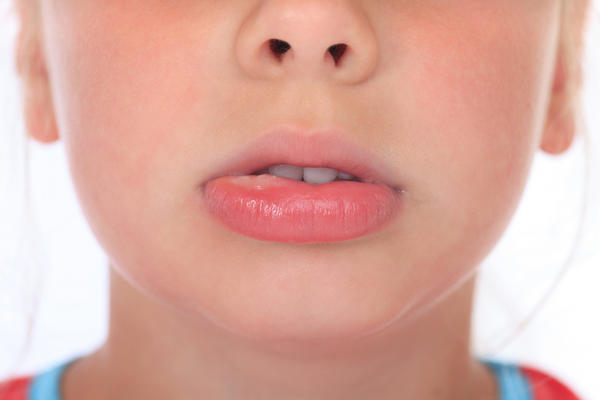While dialing the doctor’s number to inform them about your swollen lips wouldn’t be a bad idea, it may help to analyze the situation first to determine what could be wrong. Maybe it’s something you can rectify at home. Below, we discuss the three leading causes of lip swelling and what you can do.
A Definition
Lip swelling, also known as lip edema, is the enlargement or distention of one or both lips due to inflammation or fluid buildup within the tissues of the lips.
If the swelling is unexplained, it can be a symptom of an underlying health issue. The most common causes are infections, inflammation, trauma, or malignancy.
The swelling can be brief or remain for a long time, depending on the cause. For instance, sunburned lips and chapped lips tend to go away (often naturally) within a few days. However, swelling owing to lip infection may trouble you for an extended period, sometimes for weeks or even months.
Lip swelling may also be accompanied by other symptoms, depending on the cause. Common accompanying symptoms include blisters, chapped lips, fatigue, fever and chills, headache, and a runny nose. More severe symptoms may include rashes, itching in the throat, difficulty breathing, and a swollen tongue.
Causes of Swollen Lips
Though blood transfusion and fluid retention during pregnancy can also cause lip swelling, these are considered “other” issues. Typically, lip swelling is caused by three things, i.e., trauma, allergies, and infections.
1. Traumatic causes
The most common cause of swollen lips is trauma. And, among traumatic causes of swollen lips, injury is at the top of the list. Cuts, bites, lacerations, burns, and blunt-force trauma are the most common injuries.
Another potential cause of lip trauma is repetitive irritation. Environmental irritants such as cold air, high winds, and chronic lip licking can lead to lip inflammation and swelling. Many cosmetic and dermatologic products, including makeup, can also cause trauma.
Surgery of the lips, dental appliances, severe sunburn, and oral surgery are other potential causes of traumatic lip swelling.
2. Allergic reactions
The unexplained lip swelling could also be a result of an allergic reaction. A particularly common situation that may result in lip swelling is eating foods that you’re allergic to. According to the American College of Allergy, Asthma, and Immunology, about 4% of adults and at least 6% of children have food allergies. The majority are allergic to eggs, nuts, dairy, and shellfish. If you eat food that you’re allergic to, you may experience swollen lips.
Environmental allergies from animal dander, cosmetics, and dust, and pollen may also cause swollen lips. If you experience wheezing, sneezing, nasal congestion, swelling in other body parts, hives, and eczema, in addition to lip swelling, you likely have an environmental allergic reaction.
Allergic reactions may also result from insect bites or stings, such as a bee sting, and medication, such as penicillin drugs.
3. Infectious causes
The three primary infections that may cause lip swelling are bacterial, viral, and fungal infections. Cheilitis (a fungal infection), cellulitis (a bacterial infection), and herpes simplex (a viral infection) are especially common.
Cheilitis is a rare inflammatory condition that causes lump swellings on the lips. It comes in two forms, Cheilitis grandularis and Cheilitis granulomatous. The first one exclusively affects the lips and is more common in men. Both are associated with UV exposure, lip injuries, and smoking.
Meanwhile, cellulitis is caused by staphylococcus bacteria. It can quickly spread to other parts of the body and often requires hospitalization. Herpes simplex, or oral herpes, is a common disease that causes small, painful sores and fever blisters of the mouth. It’s mostly caused by HSV-1 and HSV-2.
Treatment for Swollen Lips
You can attempt to treat swollen lips at home by avoiding foods that may trigger allergic reactions and taking over-the-counter drugs if the swelling has already happened. Applying an ice pack can also reduce swelling after lip injury.
However, it’s important to know when to call the doctor as some lip swellings can be severe. The swelling may also be a sign of an underlying condition. Medical experts recommend calling the doctor if;
- You have sores in your mouth or the lips
- You have wounds in the mouth or lips
- Pus or fluids is coming from the swelling
- There’s persistent itchiness, scaling, or redness
- You notice pale or dark discoloration on the lips
- You think it’s your medications causing the swelling
Key Takeaway
Swollen lips aren’t uncommon, and most of the causes are well known. However, not all lip swellings are the same. Sometimes swollen lips can signal an underlying medical condition, such as organ failure or lip cancer. Therefore, if home remedies don’t seem to work after 2-3 days of trying, you need to see a doctor.

